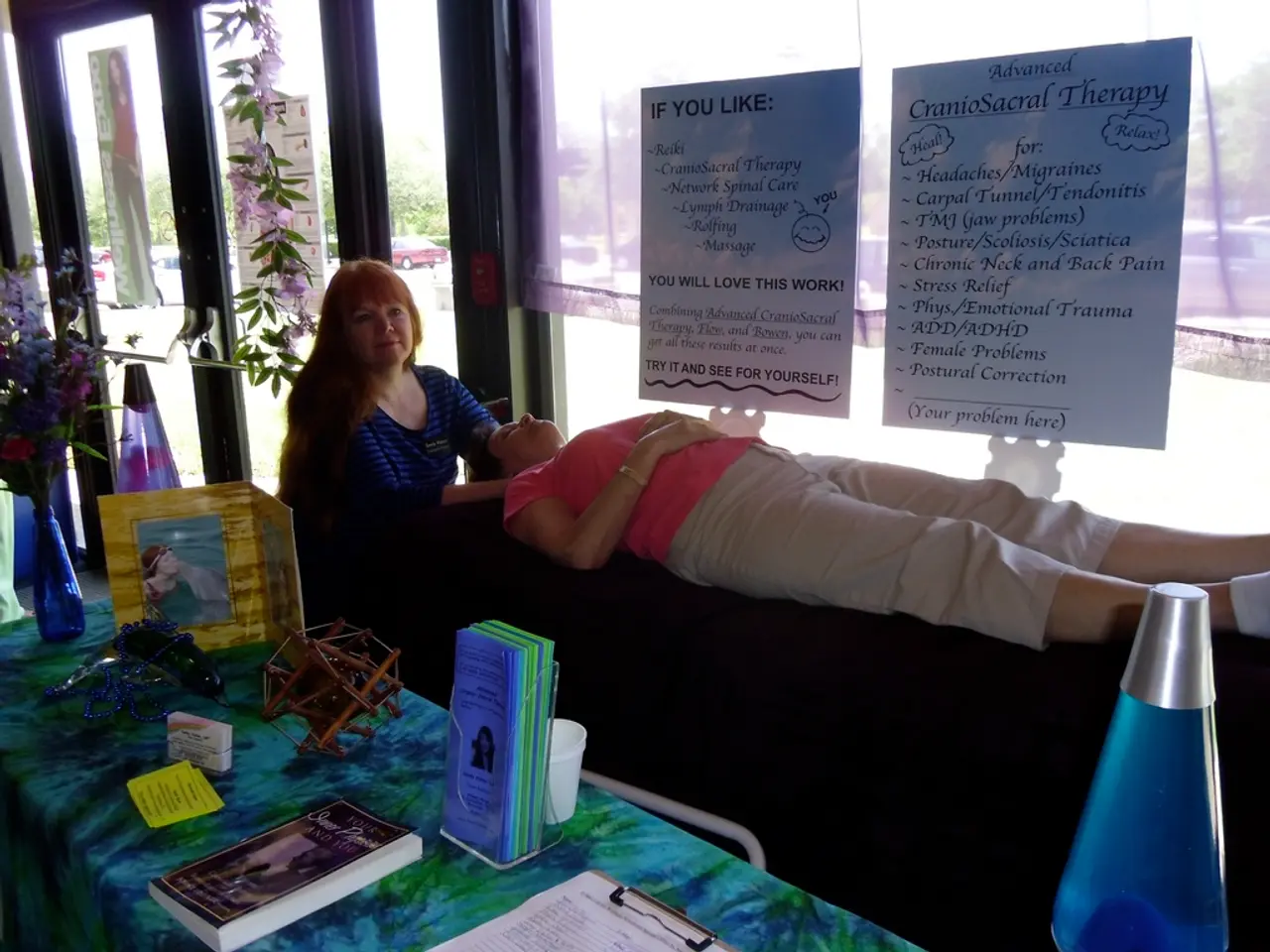Acupressure and Self-Esteem: Is it Effective?
In recent years, acupressure - a non-invasive alternative treatment based on the principles of acupuncture - has gained attention for its potential benefits on mental health. While direct scientific evidence linking acupressure to enhanced self-confidence is limited, research suggests that it may indirectly support self-assurance and trust in one's abilities by improving symptoms of anxiety, depression, and stress.
Acupuncture, a related technique involving needle stimulation of pressure points, has demonstrated some efficacy in improving mood disorders like depression, partly through modulation of neurotransmitters and neural plasticity [1]. Acupressure, which uses manual pressure rather than needles, shares similar principles and has been found effective in alleviating conditions such as pain, insomnia, and anxiety [2]. Improvements in sleep quality via acupressure can lead to better mood and resilience, indirectly supporting self-confidence.
Moreover, research shows that acupressure can help treat anxiety in people undergoing treatment for cancer [6] and in soldiers [7]. The American Psychological Association defines self-confidence as self-assurance, trusting one's own abilities, judgement, and capacities, and believing one is capable of meeting certain demands successfully. Acupressure may affect opioids within the body, which may in turn affect how people behave socially and improve psychological well-being [3].
Qualitative accounts also link acupuncture (and by extension acupressure) to profound emotional shifts and self-awareness, influencing psychological well-being and self-confidence [3]. A 2021 study found that acupressure was effective in reducing anxiety in soldiers, particularly at the acupoint known as LI4 or "hegu" [7].
According to Traditional Chinese Medicine (TCM), qi, or energy, flows through 12 meridian points in the body, which contain 365 acupoints relating to specific areas of the body. By applying pressure in specific areas to stimulate certain points, acupressure may affect levels of neurotransmitters and hormones in neural pathways, helping a person reduce anxiety, promote relaxation, improve immunity, and relieve shortness of breath [4].
While clinical trials specifically evaluating acupressure’s effects on self-confidence are sparse, evidence supports its role in improving mental states that underpin confidence. Thus, acupressure may be a helpful complementary approach for improving mental states that contribute to self-confidence, though more targeted research is needed.
In addition to being self-administered and low-cost, acupressure offers the advantage of being easily accessible. Being kind to oneself, avoiding comparison, using positive affirmations, focusing on self-care and well-being, celebrating successes, spending time with others, being assertive, doing something enjoyable, acting confident, trying something new - these are all practices that can be combined with acupressure for holistic self-care.
In conclusion, while the direct link between acupressure and self-confidence remains to be fully established, the evidence supporting its role in improving mental well-being is compelling. As a simple, non-invasive, and accessible technique, acupressure could prove to be a valuable tool in boosting self-confidence and overall mental health.
- Acupuncture, a related technique to acupressure, has demonstrated efficacy in improving mood disorders like depression, partly through modulation of neurotransmitters and neural plasticity.
- Acupressure, by improving symptoms of anxiety, depression, and stress, may indirectly support self-assurance and trust in one's abilities, contributing to enhanced self-confidence.
- Research suggests that acupressure can help treat anxiety in people undergoing treatment for cancer and in soldiers, further supporting its potential role in mental health and self-confidence.
- Acupressure may affect opioids within the body, potentially improving psychological well-being and social behavior, both of which can indirectly support self-confidence.
- By stimulating specific points, acupressure may help reduce anxiety, promote relaxation, improve immunity, and relieve shortness of breath, contributing to better overall health and well-being, which in turn can foster self-confidence.
- In addition to being self-administered and low-cost, acupressure can be combined with other practices such as self-care, positive affirmations, and goal setting for holistic self-development and personal growth.
- The evidence supporting acupressure's role in improving mental well-being, including symptoms of anxiety and depression, suggests that it could be a valuable tool in boosting self-confidence and overall mental health.




